Migrants in Dunkirk undeterred by UK's Rwanda bill
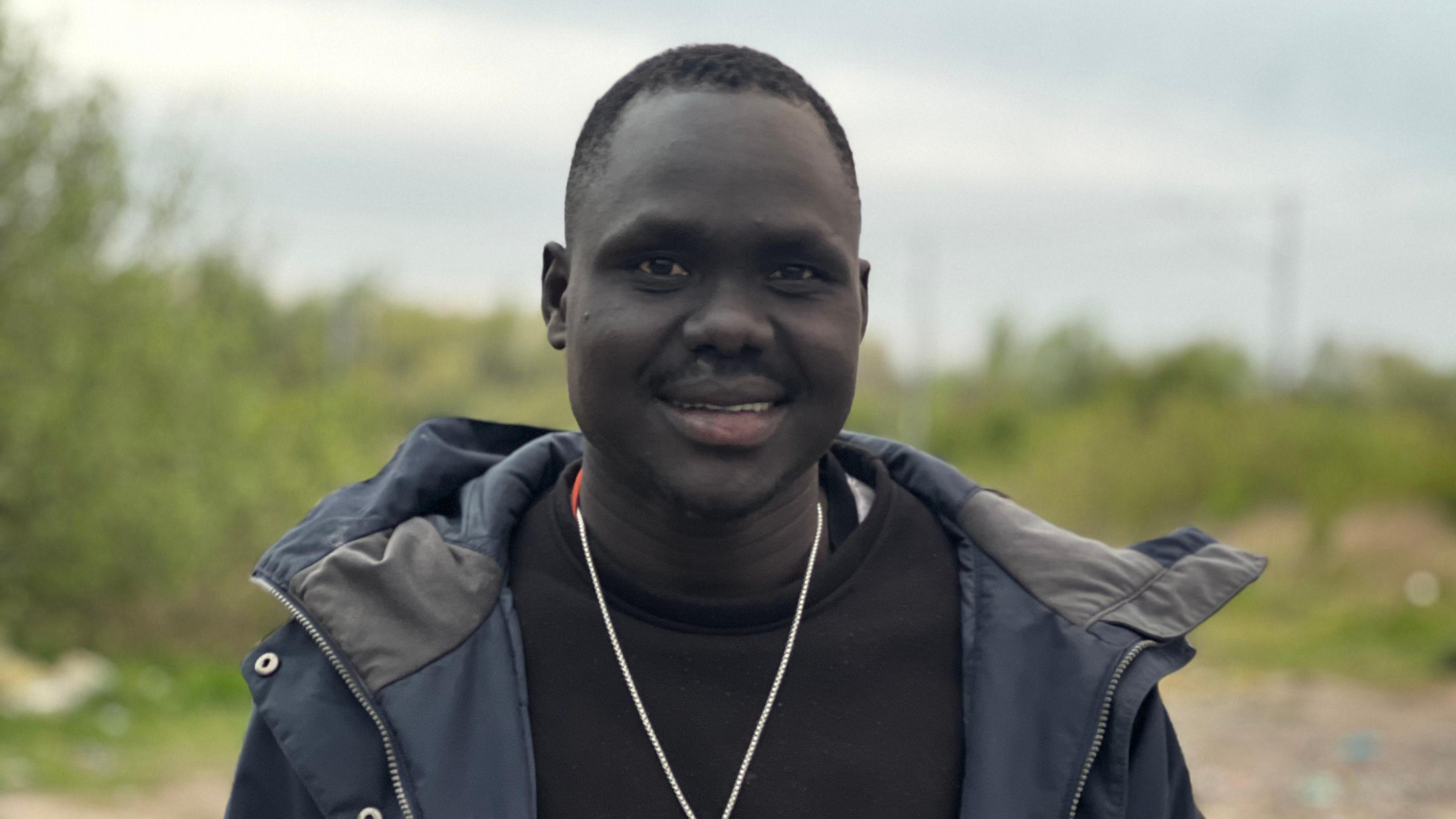
James said he had taken risks travelling to Europe by boat
- Published
On a brisk afternoon in northern France cars whisk past a migrant camp in Dunkirk populated by dilapidated tents and people facing the prospect of being sent to Rwanda if they enter the UK.
This is because the UK government is trying to pass new legislation to allow some asylum seekers to be sent to the African country where their claims would be processed.
One man told the BBC he would feel suicidal if he was sent to Rwanda after travelling for three years to get to the UK.
He described the UK government's proposals as "inhumane".
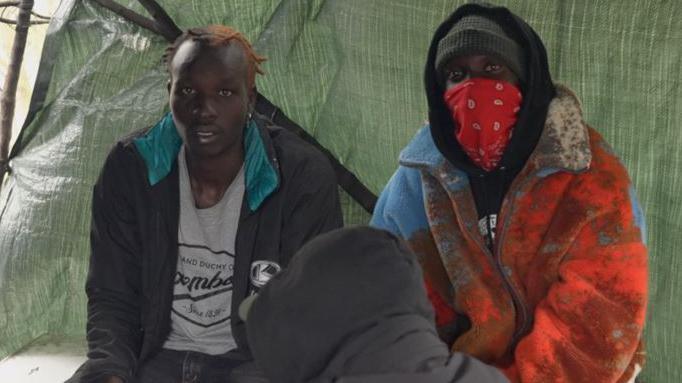
"Daniel" said if he was sent to Rwanda he would just try to come back
"They don't know how far we have come and what it takes for us to come here,” he said.
If the five-year agreement is successful, the migrants could be granted refugee status and allowed to stay.
If not, they could apply to settle in Rwanda on other grounds, or seek asylum in another "safe third country".
No asylum seeker would be able to apply to return to the UK.
In the litter-strewn encampment in Dunkirk, James said he did not consider Rwanda to be safe, after having risked travelling to Europe by boat to flee his home in Sudan.
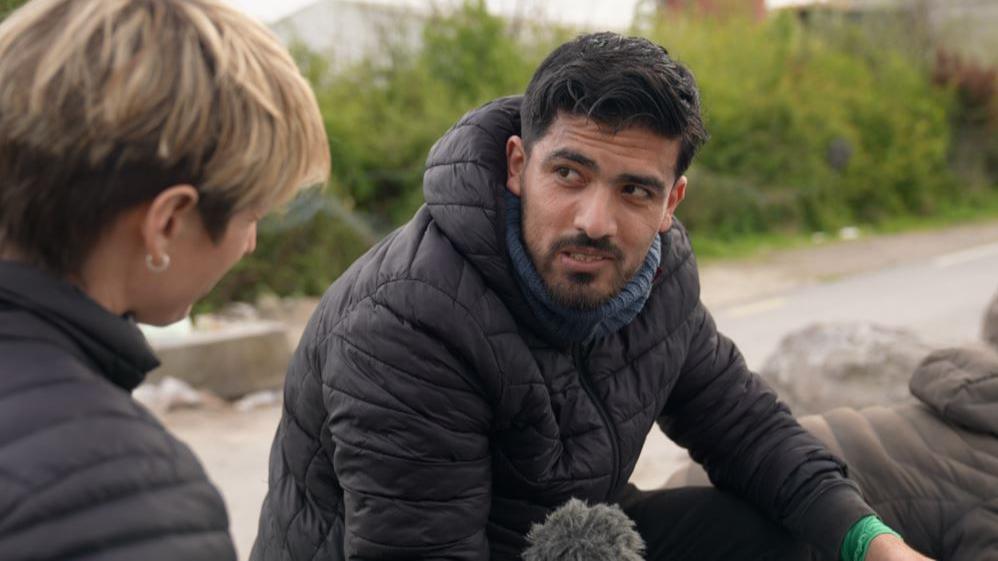
"Richard" said it was important he made it to the UK
In November 2023, the UK Supreme Court ruled unanimously that the Rwanda scheme was unlawful and cited concerns about Rwanda's poor human-rights record and its past treatment of refugees.
Following the ruling, the UK government introduced a bill to make clear in UK law that Rwanda is a safe country.
Daniel (not his real name) said if he was sent to Rwanda he would just try to come back again.
Another man, who also declined to give his name but who we are calling Richard, was cleaning his shoes by a communal sink while others washed their clothes.
He told us the threat of going to Rwanda did not concern him.
"I [will] try my chance," he said. "If I go to Rwanda or Africa it's no matter for me, but first I want to go [to the] UK. It's important."
So far this year, nine people have drowned attempting to cross the English Channel, compared with 12 for the whole of 2023.
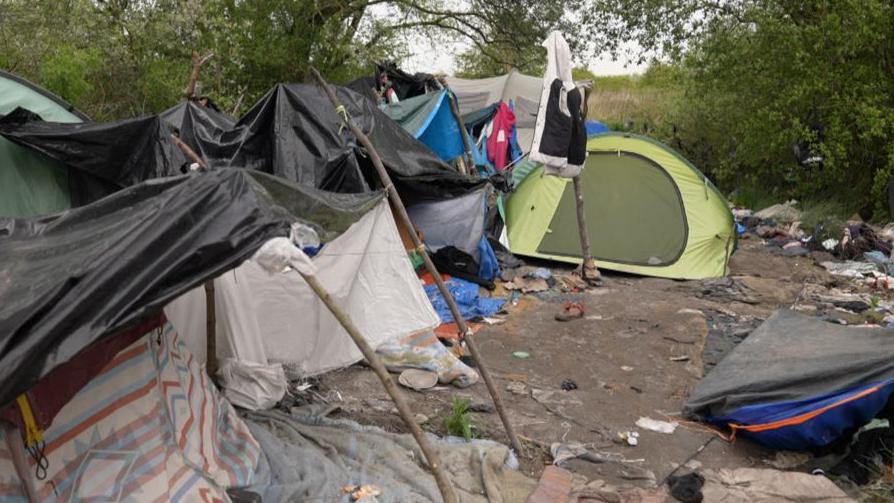
Some migrants have set up an encampment in the woods
The number of migrants who arrived in the UK after crossing the Channel reached a record for the first three months of a calendar year, with the total surpassing 4,500.
Chris McSherry, the operation coordinator at the Care 4 Calais refugee charity, said of the Rwanda policy: "If it was a deterrent people wouldn't be here [in Calais].
"But people are still here and people will continue to be here.
"People on the ground are nervous, they are scared about the situation, but they still want to make it to the UK."
In December, Prime Minister Rishi Sunak said: “We must have a deterrent that says, 'If you come here illegally, you cannot stay and you will be removed'.
"When we can get that up and running, as we have with Albania, we will see the numbers come down.”
The Rwanda deportation bill had been expected to clear its final stages on Wednesday, but another vote is now expected on Monday.
A government spokesperson said asylum seekers who arrived illegally after 20 July 2023 would be "subject to a duty to remove" and will have their asylum claim declared "inadmissible".
“Once the Safety of Rwanda Bill and Treaty are in place, we will get flights off the ground as soon as possible,” they said.
Follow BBC Kent on Facebook, external, on X, external, and on Instagram, external. Send your story ideas to southeasttoday@bbc.co.uk or WhatsApp us on 08081 002250.
Related internet links
- Published13 June 2024
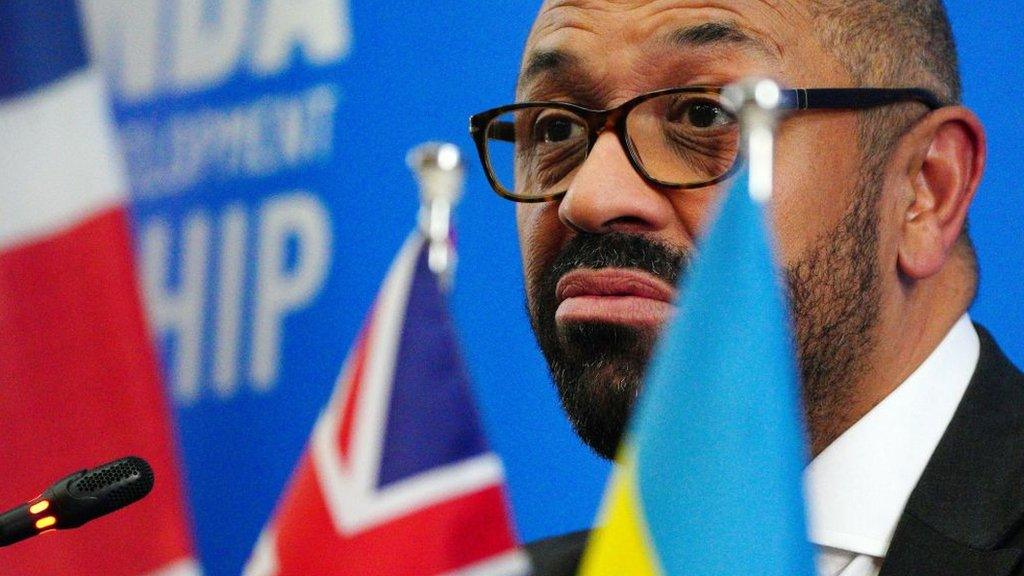
- Published15 November 2023
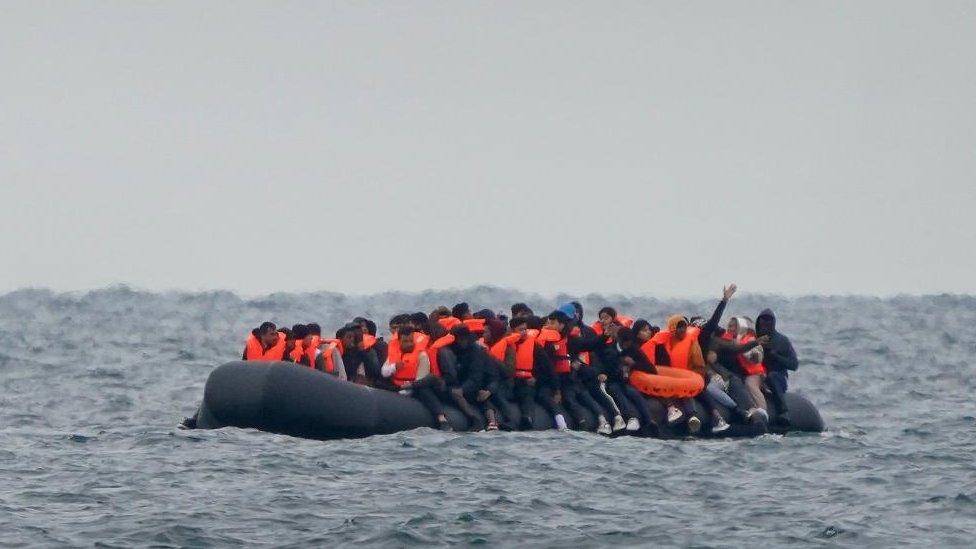
- Published1 December 2023
